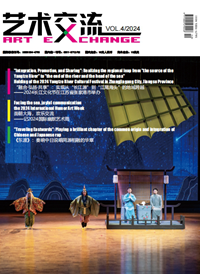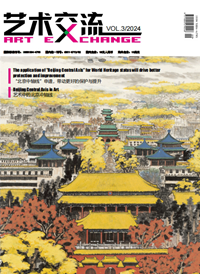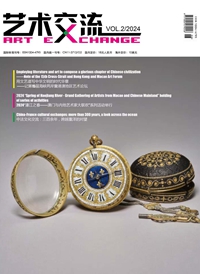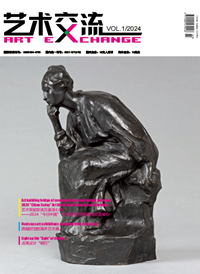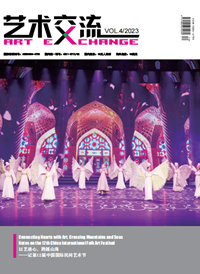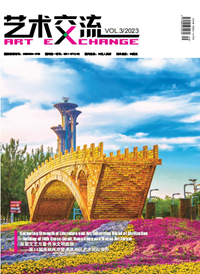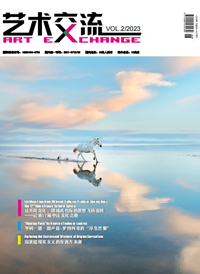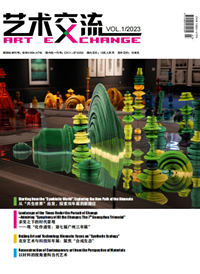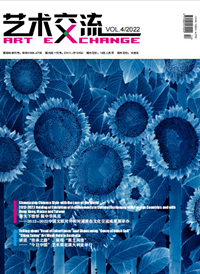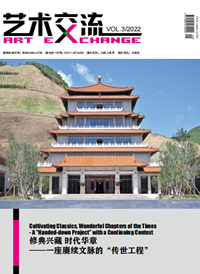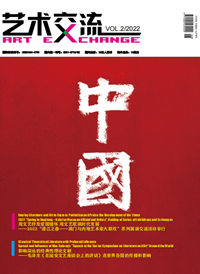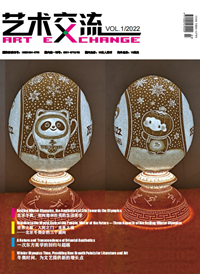
Ancient Tonghai City amidst Morning Light

First B&B inn in the ancient city

Tea-Horse Road

"LI YUE MING BANG" on the red wall of the Temple of Literature

Jukui Pavilion at Night
In just short period of two days when visiting the ancient city of Tonghai in Yunnan Province, which has the reputation of "Spiritual and Virtue State" with beautiful landscape and profound cultural blends, I came to understand that the ancient city of Tonghai has a long history of over 630 years after paying my tribute in Confucius Temple in Xiu Moutain, letting me shuttle from the well-preserved 24 ancient streets and alleys to the time tunnel of the Ming and Qing Dynasties, tasting the historical vicissitudes of more than 200 "one-print" Ming and Qing dynasties from the design of unique residential buildings, finding the traces of the old caravan walking from the ancient tea-horse road that carries the dream, understanding the hopes for a better life in the future from the industrious neighbors and accepting the baptism of ancient Chinese culture from the traditional crown ceremony. This is the ancient city of Tonghai, a place of ancientness, distance, mystery, and full of vitality.
Origin of Spiritual and Virtue State
As a city of culture, the ancient city of Tonghai features a long history with simple folk customs and profound cultural heritage since ancient times, attracting merchants from far. When you stand outside the Confucian Temple in Xiu Mountain, you could clearly feel the four Chinese characters LI YUE MING BANG on the red wall of the Temple, meaning "LI, manage the country, achieve social harmony, live a stable life; YUE, change the traditional customs, eliminate evil thoughts and promote noble sentiments; MING BANG means places rich in talents, as there were 278 people out of two generations claiming the first-degree scholars, imperial scholars and the Hanlin academicians of the Ming and Qing Dynasties, cultivating ZHU Zun (Minister of Rites) based upon the study of temple knowledge in Tonghai, DONG Qi and DONG Jian of GONGSUN Hanlin, renowned calligrapher KAN Zhenzhao and etc."
In the ancient dwellings, I also found a very meaningful multicultural folk phenomenon. Since the ancient city of Tonghai is the residence of Mongolian, Yi, Hani and other ethnic minorities, each of the halls of every household has chosen murals, couplets and poems presenting the main personality, different performance and distinct national characteristics; the diverse styles of resting areas by water, corridors and murals in the courtyard fully demonstrate the Chinese cultural heritage of the ethnic minorities in Tonghai. To date, it is highly commended that the residents of the ancient city still maintain the tradition of chanting poetry and painting, as they "consider the wine as a pair of songs, make a splash of ink and poetry and enjoy the gentle and slow life" from time to time in the Confucian Temple in Xiu Mountain, or in their own yards.
Unique Residential Building
Accomplished since the 15th year of Ming Hongwu, the whole ancient city was built by the mountain (Xiu Mt.) while facing the lake (Qilu Lake), sitting south to the north. The city, which was under regular construction, witnesses the intersection of all directions---Jukui Pavilion. Overlooking from high location, the ancient city looks like a seal, the pavilion the seal handle while the ancient dwellings built around it. Just as the poet QIAN Nanyuan of the Qing Dynasty once chanted, "the lonely city sits by the mountains and waters, and remembered in the rainy places to the southern China".
Looking around, the ancient houses, shops and monasteries on both sides of blue-slate road are preserved in the style of Ming and Qing Dynasties. The diverse-formed residential buildings, mixed-structured and intricate courtyards, and the ancient houses all follow the "one seal" courtyard pattern of Yunnan Province, which, after centuries of historical evolution, still retains its quaint charm,especially the pavilions and waterfront promenades, the courtyard pillars, the bonsai woodcarving murals, and the stone ponds with ancient musical instrument of the well-preserved dwellings are perfectly combined under the hands of skilled craftsmen. It is this houses that stand in the wind and rain, surviving in the smoke, talking amid inheriting the culture, informing people one story after another, and becoming the most proud romance of people's life of the ancient city.
Ancient Streets
Surrounding the Jukui Pavilion, the streets and lanes of the ancient city Tonghai extend from the east, west, south and north, reflecting the traditional Chinese "Nine Palaces" pattern. There are 24 traditional streets and alleys in the city, including 12 north-south streets and 12 east-west streets respectively. The original pattern and street names are still preserved, as they are like the meridian of Tonghai ancient city, connecting all people while performing a beautiful legend one after another.
When you go down the street and walk through the lanes, you can see that the streets are well organized, the houses are also under functional preservation, and the people are civilized and harmonious. Residents are all gentle and calm with courtesy and enthusiasm to greet and invite visitors for tea and chat with passion when people walk on the bluestone streets in this comfortable and calm day upon encountering anyone, entering any households or exploring any stories. It seems that every house, slate or ancient well in this place is quietly telling the long years of traditional culture of Tonghai.
Silent Tea-horse Road
Tonghai was once an important station on the ancient teahorse road. I heard that Yongji Bridge was the only way to the ancient tea-horse road. Following the mottled streets leading to the Bridge, I found that there was no such thing as a bustling town. It's so quiet and serene, just like: "Tranquility with Silence."Although the river under the famous Yongji Bridge on the ancient tea-horse road has dried up, the horse shops gathered by the merchants along the Yongji Bridge has been used for other purposes, however, the bridge still holds this ancient golden road shouldering dreams of so many horse-riders. Walking on the stones that have been smoothed and polished by the horseshoes in the past, you will also find the shaded horseshoe prints of the caravans passing through in the past, still recording the traces of ancient times.
According to the records of Tonghai County, the ruling power of the Tang Dynasty passed through the "Tonghai" to "Tuodong City" (now Kunming) and "Dali" from "Annan (Hanoi of Vietnam)" in the early Tang Dynasty so as to tightly control Yunnan and consolidate the unification of the area. Tonghai is located in the central area of Yunnan, 125 kilometers from Kunming and more than 40 kilometers away from Yuxi. The Pan-Asia Railway, the great Southeast Asian international passage, passes through the territory of Tonghai. It is not only a golden ancient road with rich products and culture, but also the transportation hub connecting Jiaozhi (present-day Vietnam) to the south, Yunnan and Sichuan to the north, and western Yunnan, Myanmar and India to the west. However, after the opening of the Yunnan-Vietnam Railway in 1910, the ancient city of Tonghai gradually lost its transportation advantage, leading the ancient city into silence...
Pure and Honest Neighorhood
Walking in the streets of blue slate, it seems to touch the times of Ming and Qing Dynasties, the weather-stricken elderly lady of Dai nationality, the daddy of Meng nationality enjoying his leisure, women of Hani nationality and the youngster of Yi nationality involved in painting constitute a life picture of Tonghai with filial piety, harmony and peace with nature.
In a B&B inn, I chatted with an old lady and her daughter-inlaw. Her home was the first batch of rebuilt B&B in the town decorated with many antiques, the double standard room was comfortable and clean with tranquility.
The 90-year-old lady had clear ears and eyes, talking to me pointing at the inn sign of the gate that this is the "Excellent Inn" brand issued by the government. Admiring the satisfaction, pride and happiness on her face, I sincerely felt gratified for the lady's sense of security, worthiness and the feeling of happiness, which is the tradition of China - loyalty and filial virtue, I wish the old lady a fulfilling longevity.
Traditional Crown Ceremony
The adult ceremony is also called the crown ceremony. Confucianism positions this ceremony as the beginning of etiquette with a very high cultural status. Teenagers between the ages of 15 and 18 participate in adult ceremonies, which inspire the young people's patriotic, progressive, rational, and industrial spirits. It is committed to opening a new chapter in life with solemn rituals, helping them to realize the shouldering of responsibility, fulfilling obligations and declaration of adulthood. In this particularly warm adult day, parents give their children a crown and personally comb their hair. The boy's parents crown their son, and the girl's parents comb the daughter's hair, meaning the child is no longer spoiled while bidding farewell to childishness and embracing maturity, taking up social responsibility, and also marking the starting of their adult life.
The crown ceremony in Tonghai ancient city, held irregularly every year, allows parents and their children to simultaneously absorb the traditional culture of the Chinese nation, build a spiritual bridge let children perform filial piety, be grateful, and make the parents acknowledge more about their children with much communication and harmony. Although I did not participate in the ceremony directly, I still felt its traditional charm at the gallery of Tonghai Xiushan Primary School.
Although it is just a glimpse of the traditional culture of the ancient city of Tonghai, you may feel that the millennium may be inadvertently flowing between Xiu Mountain and the Confucius Temple after thorough taste, not only in the hustle and bustle of Qilu Lake, but also melting into the hearts of each of us...
Standing in front of the statue of the Confucius and his disciples in the Confucius Temple, I felt that there was such silence between heaven and earth. A leisurely and slow life scene never seen before came into my mind. A white cloud hanging slowly over the temple, the devout pilgrims were scenting slowly, bowing and praying, and I was slowly savoring the ever dialogue with the ancient city. In any case, Tonghai ancient city used to be an important station on the ancient tea-horse road. Its well-preserved complete spatial pattern, streets and architectural style not only revealed the prosperity of the past, also indicated its importance as inheriting and promoting the rituals of China.



